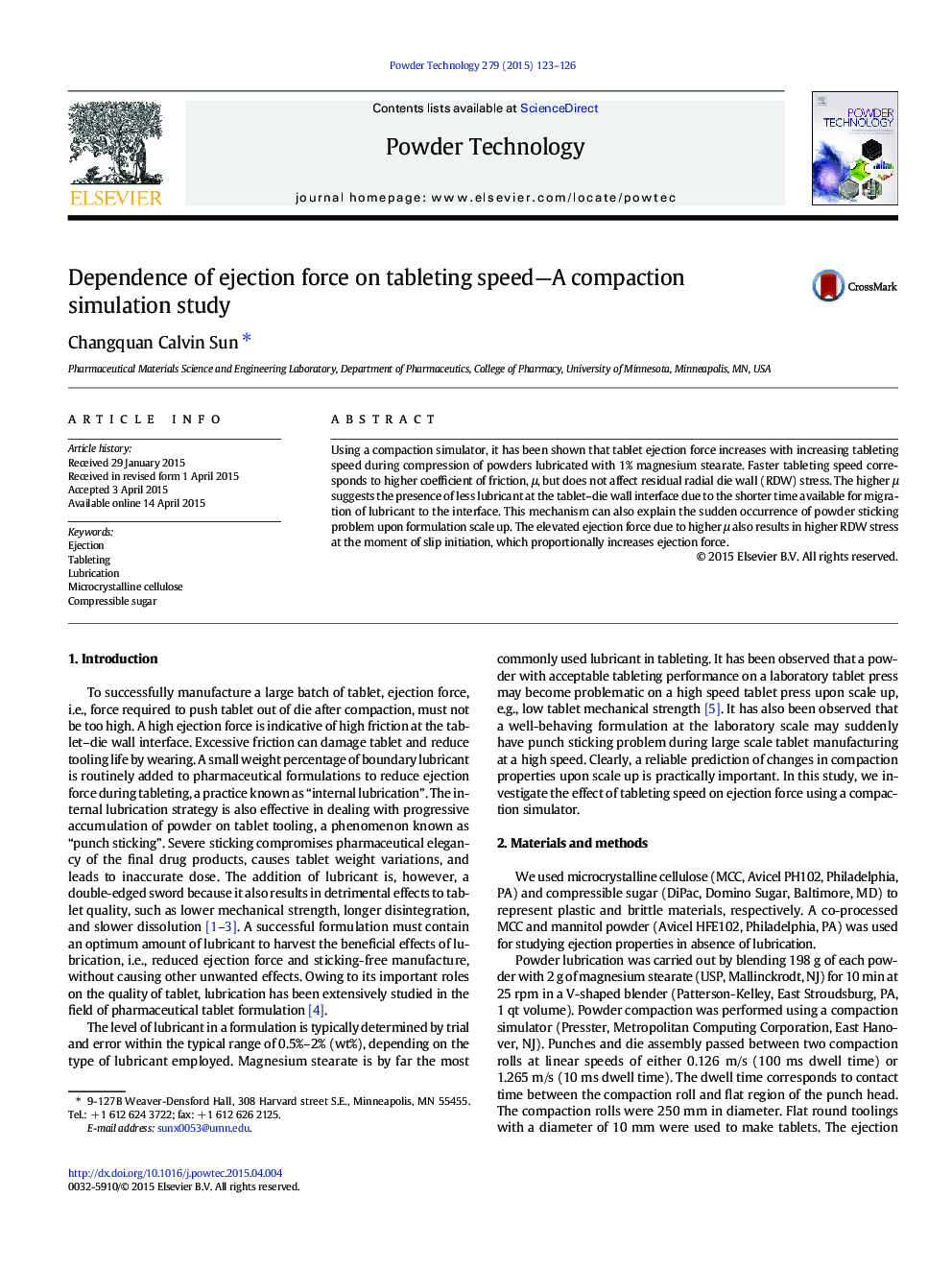| Article ID | Journal | Published Year | Pages | File Type |
|---|---|---|---|---|
| 235567 | Powder Technology | 2015 | 4 Pages |
•Tablet ejection force increases with increasing tableting speed.•Migration of lubricant from tablet to die wall interface is an important mechanism for this effect.•Powders with intrinsically high ejection are more sensitive to tableting speed change.•Judicious selection of excipients exhibiting low radial die wall stress may enable lubricant-free formulation.
Using a compaction simulator, it has been shown that tablet ejection force increases with increasing tableting speed during compression of powders lubricated with 1% magnesium stearate. Faster tableting speed corresponds to higher coefficient of friction, μ, but does not affect residual radial die wall (RDW) stress. The higher μ suggests the presence of less lubricant at the tablet–die wall interface due to the shorter time available for migration of lubricant to the interface. This mechanism can also explain the sudden occurrence of powder sticking problem upon formulation scale up. The elevated ejection force due to higher μ also results in higher RDW stress at the moment of slip initiation, which proportionally increases ejection force.
Graphical abstractFigure optionsDownload full-size imageDownload as PowerPoint slide
